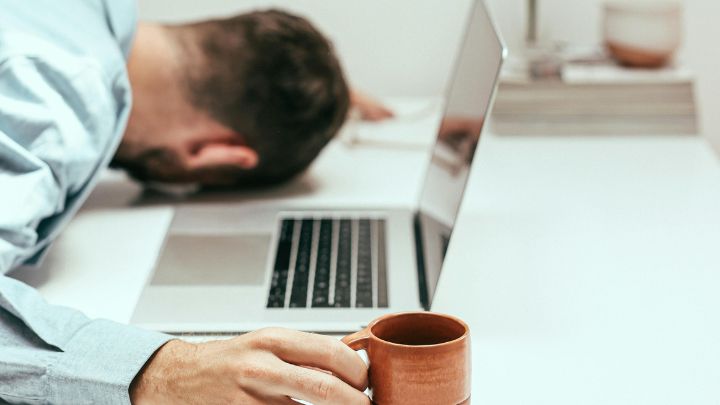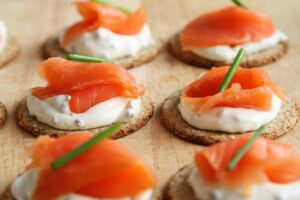Feeling exhausted after meals? You’re not alone. Many people experience a slump in energy levels after eating, a phenomenon known as postprandial somnolence or, more commonly, a “food coma.”

Feeling tired after eating can disrupt your day, making it hard to stay productive and alert. But why does this happen, and is there anything you can do about it?
In this Avea article, we’ll explore the scientific reasons behind post-meal fatigue, and provide practical tips to help you maintain steady energy levels.
Discover how your diet, meal timing, and even lifestyle habits, play a definitive role in how you feel after your meals. Do you want to enjoy your foods without the unwanted drowsiness?
In this article
FREE anti-ageing guide

- Master the science of rejuvenation.
- Apply proven tips to turn back the clock.
- Transform your health with top longevity specialists.
Why am I so tired after eating?
You have a busy schedule. You’re constantly juggling meetings, presentations, and decision-making.
After lunch, you find yourself struggling to keep your eyes open during an important meeting. It’s not just you—many people experience a similar slump in energy levels after eating.
Feeling tired after a meal can be frustrating. But what’s to blame? Turns out, post-meal tiredness has a root cause that is influenced by several factors.
1. Large meals
Consuming large or calorie-dense meals requires extra energy for digestion. When you eat a big meal, your body redirects blood to your digestive system to help break down the food, leaving you feeling tired and sluggish.
If you eat a big lunch, you’ll most likely experience more of an afternoon slump than those who eat less at midday. Eating causes blood sugar to rise, and a dip in energy may follow.
2. High-carbohydrate foods
High-carb meals, especially those with a high glycaemic index* can cause rapid spikes and crashes in blood sugar levels.

High Glycaemic Index (GI)*
Definition: The glycaemic index is a ranking of carbohydrates in foods according to how they affect blood glucose levels. Foods are ranked on a scale from 0 to 100, with higher values given to foods that cause the most rapid rise in blood sugar.
Example: Foods with a high GI (70 and above) include white bread, sugary snacks, and potatoes.
This fluctuation triggers fatigue, making you feel like you need a nap. Foods rich in carbohydrates include pasta, rice, white bread, cakes, cookies, and sugary snacks.
3. Fat-rich foods
Foods high in fat, such as fried foods, creamy dishes, and high-fat desserts take longer to digest. This extended digestion process can slow you down and make you feel lethargic.
4. Food sensitivities or allergies
Reactions to certain foods can trigger various symptoms, including fatigue. If you have an intolerance or allergy, your body’s immune response can sap your energy, leaving you feeling drained. Symptoms may include bloating, gas, headaches, or hives.
5. Medications
Certain medications list drowsiness as a side effect. When taken around mealtime, this effect can be more pronounced, making you feel even more tired after eating.
6. Poor sleep quality
Not getting enough quality sleep can amplify feelings of tiredness after meals. If you’re already running on low energy, eating a meal can push you over the edge into full-blown drowsiness. A person who gets enough sleep at night is less likely to experience a significant post-lunch energy dip.
Understanding the factors that contribute to post-meal fatigue is crucial, but there’s a particularly significant aspect we need to delve into: blood sugar spikes.
These sudden increases in blood glucose levels play a central role in how your energy fluctuates throughout the day.
Why blood sugar spikes are bad for health
Blood sugar spikes occur when glucose levels in your blood rise sharply after consuming high-glycaemic index foods. These spikes are followed by rapid drops, leading to a cycle of energy highs and lows.
Here are a few reasons why these sugar spikes are harmful for your health, both in the short-term and long-term:
- Increased fatigue: The rapid rise and fall in blood sugar levels can leave you feeling exhausted after the initial surge of energy dissipates.
- Risk of diabetes: Frequent blood sugar spikes can overwork your pancreas, leading to insulin resistance and increasing your risk of type 2 diabetes.
- Heart health: High blood sugar levels can damage blood vessels and nerves, contributing to cardiovascular diseases.
- Weight gain: Blood sugar spikes can trigger hunger soon after eating, leading to overeating and weight gain.
Learn more about the dangers of blood glucose spikes here.
Real-time control: Lower glucose spikes by 40%

- Stay energised throughout the day.
- Improve your metabolic health.
- Support healthy weight management.
The Avea Stabiliser containing Reducose, Chromium, and Berberine, effectively combats post-meal fatigue by regulating your blood sugar levels and enhancing your metabolism.
These ingredients are backed by numerous scientific studies and have a long history of traditional use.
Reducose, a White Mulberry leaf extract, inhibits carb absorption, preventing blood sugar spikes and promoting longer satiety.
Chromium improves insulin function and stabilises blood glucose, whilst Berberine enhances insulin sensitivity and reduces inflammation.
Together, these ingredients maintain consistent energy levels, reduce cravings, and support cognitive performance, making it easier to stay alert and energised after meals.
Why do blood sugar spikes make you feel tired after eating?
When you consume foods with a high glycaemic index, your body quickly breaks them down into glucose, causing a sharp rise in blood sugar levels.
In response, your pancreas releases insulin to help cells absorb glucose and use it for energy.
However, this can lead to:
- Energy crash: Once insulin has done its job, blood sugar levels can drop rapidly, causing you to feel tired and sluggish.
- Serotonin production: High-carbohydrate meals can increase the production of serotonin, a neurotransmitter that promotes relaxation and sleepiness.
- Increased melatonin: Carbohydrates can also lead to increased levels of melatonin, the hormone responsible for regulating sleep cycles, further contributing to post-meal drowsiness.
Opting for foods with a low glycaemic index and balancing your meals with proteins and healthy fats, can maintain stable blood sugar levels and steady energy throughout the day.
Stabilise your glucose levels with expert advice

- Learn how to reduce blood sugar spikes.
- Discover how to optimise metabolic health.
- Easy-to-implement tips that millions are following.
Foods that make you tired
Certain foods are more likely to cause post-meal drowsiness. Besides high-carb foods or fat-rich foods, usually present in most Western dishes, like pizza, burgers, and pasta, the following can also contribute to fatigue:
1. Tryptophan-rich foods
Tryptophan, an amino acid found in protein-rich foods, helps produce serotonin, which can make you feel sleepy. Examples include:
- Turkey
- Cheese
- Salmon
- Poultry
- Eggs
- Spinach
- Seeds
- Soy products
2. Melatonin-rich foods
Melatonin, a hormone that regulates sleep, is found in certain foods and can make you feel drowsy. Examples include:
- Tart cherries
- Tomatoes
- Oats
- Grapes
- Broccoli
- Cucumber
- Pomegranate
- Walnuts
Foods that give you energy
Eating is meant to nourish and energise you, allowing you to tackle daily tasks with vigour. Real, wholesome foods will fuel your body and keep your energy levels steady.
If you’re constantly feeling tired after meals, it might be a sign that your body isn’t loving what you’re providing it, or at least, the way you are feeding it.
Better nutrition can make a significant difference in how you feel on a daily basis. Here are some foods to incorporate into your diet to maintain steady energy levels, and keep you feeling your best all day long.
1. Beans and legumes
Beans and legumes are excellent sources of protein and fibre, helping to stabilise your blood sugar levels and keep you feeling full. Incorporating black or red beans, chickpeas, or lentils into your meals can keep you energised longer.
2. Fatty fish
Fatty fish like salmon, mackerel, and sardines are rich in omega-3 fatty acids, crucial for brain function and overall energy. Omega-3s reduce inflammation and help you stay alert and focused throughout the day.
3. Leafy greens
Leafy greens such as spinach, kale, and Swiss chard are packed with vitamins and minerals like Iron, Magnesium, and Vitamins A and C. These nutrients boost your energy levels and help prevent fatigue.
4. Whole grains
Whole grains like brown rice, oats, and quinoa provide long-lasting energy without causing blood sugar spikes. Their high fibre content slows down sugar absorption, offering a steady source of energy.
5. Nuts and seeds
Nuts and seeds offer healthy fats and protein, maintaining steady energy levels. Almonds, walnuts, chia seeds, and flaxseeds are perfect snacks or meal additions to keep you full and energised.
Other easily available, energy-boosting foods
- Beets: Rich in nitrates, beets improve blood flow and oxygen delivery to your muscles, boosting stamina.
- Chia seeds: Packed with omega-3 fatty acids, protein, and fibre, chia seeds are excellent for boosting energy.
- Sweet potatoes: High in complex carbohydrates and fibre, sweet potatoes provide long-lasting energy and stable blood sugar levels.
Does high blood sugar make you tired?
Yes, high blood sugar levels can cause fatigue. When you consume too many sugars, your body may struggle to transport them efficiently to your cells for energy. Hyperglycaemia occurs when there is an excess of glucose in your bloodstream.
This can happen when your body either produces insufficient insulin, or your cells become resistant to insulin’s effects. Insulin is crucial for transporting glucose from the blood into cells, where it is used for energy.
Without effective insulin function, glucose remains in the blood, leading to high blood sugar levels. This excess glucose can cause dehydration as your body attempts to expel it through increased urine output.
Chronic high blood sugar can lead to insulin resistance, where cells are less responsive to insulin. Both dehydration and inadequate glucose utilisation result in fatigue and a lack of energy.
Discover– Insulin resistance diet plan: 8 hacks for balancing blood sugar levels.
Does low blood sugar make you tired?
Low blood sugar, or hypoglycaemia, can also cause fatigue. Consuming simple carbohydrates that are quickly digested can lead to a rapid increase in blood sugar followed by a steep drop.
Hypoglycaemia occurs when blood glucose levels drop too low, depriving your cells of the energy they need to function.
This can happen when insulin or other glucose-lowering medications are over-administered, or if there is an imbalance between the amount of insulin in your body and the glucose derived from food.
Symptoms of hypoglycaemia include dizziness, confusion, irritability, and fatigue. Rapidly digested carbohydrates cause a swift increase in blood sugar, triggering a significant insulin response.
Once insulin moves glucose into cells, blood sugar levels can drop sharply, leading to a hypoglycaemic state.
By consuming balanced meals, you ensure a gradual and steady release of glucose into the bloodstream, preventing sudden drops in blood sugar and maintaining consistent energy levels.
7 practical tips to prevent being tired after eating
Now that you know foods impact how you feel after a meal, here are some habits to help you stay alert and energised.
1. Balance your plate
Include a mix of fibre-rich carbohydrates, lean proteins, and healthy fats in each meal. This balance helps stabilise blood sugar levels and keeps you feeling energised. Try incorporating whole grains, proteins like chicken or legumes, and healthy fats such as avocado or nuts into your meals. Always more veggies, followed by proteins, and lastly carbs.
2. Eat little and often
Instead of eating large meals, opt for smaller meals and snacks every few hours. This approach helps maintain consistent energy levels throughout the day. Plan healthy snacks like fruit, nuts, or yoghurt and keep them handy for when hunger strikes.
3. Stay hydrated
This one might be the most important one. Drinking plenty of water throughout the day helps in digesting and maintaining sustainable energy levels. Aim for at least 8 cups (2 litres) of water daily. Carry a water bottle with you and set reminders to drink regularly. Add a slice of lemon or cucumber for a refreshing twist.
4. Get moving
A short walk after eating can help digestion and keep you alert. Even 10-15 minutes of moderate activity can make a significant difference. Fit in short walks or light exercise whenever possible. If you work in an office, consider a brief walk around the block after lunch or take the stairs instead of the elevator.
5. Try bright-light therapy
Exposing yourself to bright light after lunch can reduce tiredness and help you feel more awake and alert. Spend time outside in natural sunlight during your lunch break or use a light therapy box for 20-30 minutes in the early afternoon.
6. Avoid drinking alcohol with meals
Alcohol can make you feel more tired, so it’s best to avoid it during meals, especially during the day. Opt for non-alcoholic beverages instead. If you enjoy a drink, save it for the evening when you don’t need to stay as alert. Or, you could also quit drinking.
7. Prioritise sleep
Last, but not least, good sleep hygiene is essential for maintaining energy levels. Ensure your sleep environment is comfortable and stick to a consistent sleep schedule. Create a relaxing bedtime routine, such as reading or taking a warm bath. Keep your bedroom dark, quiet, and cool. Avoid screens at least an hour before bed and aim for 7-8 hours of quality sleep each night.
When to see a doctor
If you feel continually tired after eating and it is affecting your quality of life, then you should speak to a doctor. The following medical conditions could contribute to excessive tiredness after eating:
- Food intolerances or allergies
- Coeliac disease
- Anaemia
- Diabetes














